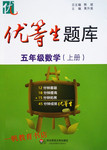题目内容
Two teaching staff stood in court last week, in different parts of Britain, each charged with assault (人身侵犯)after attempting to remove a troublemaking student from the classroom.In both cases the men had been suspended(使暂时停职) from their schools and each had spent almost a year waiting for their cases to come to court.One man, Mark Ellwood, was cleared.The other was found guilty.Both cases show the almost impossible position teachers are now in as they try to keep order in schools.They have the responsibility for what goes on in classrooms, but it’s naughty pupils who have the power.
Ellwood was the comparatively lucky one.He was brought in to work with children with behavioral difficulties.When he asked a boy to take off his jacket and put away his phone, the pupil threatened to stab(刺)him.Ellwood removed the boy from the class, and when the boy started kicking him, Ellwood swept his feet from under him and lowered him to the ground.Weeks later he was charged with assault.Social services decided that the charge made him a potential risk to any child, so he was ordered to leave his wife and teenage daughters and move out of his home.The judges told him that they hoped he would now forget his nightmare and restart his life.
Sixty-two-year-old Michael Becker is the man who lost his case and will now lose his job.He taught in a special school.On the day of the incident, they were making pinhole cameras when the 15-year-old pupil arrived late.He refused to sit down, and instead walked around the classroom, telling jokes.He ignored several requests to start work and refused to leave the classroom when asked.Eventually Becker seized the boy by his belt and sweatshirt and removed him to a nearby storeroom, with the boy falling down as he struggled to break away.A teaching assistant, sent to check on him a few minutes later, found him sitting in the corridor, clearly unharmed.Becker considered the incident over, but the next day he was suspended as the subject of a police investigation.
1.Why did two British teachers stand in court?
A.Because they were charged with assault on their students.
B.Because they removed a troublemaking student from a classroom.
C.Because they were suspended from their schools.
D.Because they tried to keep order in schools.
2.According to the passage Ellwood __________.
A.was found guilty and lost his job B.was too strict with his students
C.often punished his students D.was lucky not to lose the case
3.When the incident happened, Michael Becker __________.
A.lost his case and will lose his job
B.was teaching his students to make pinhole cameras
C.ignored several requests to start work
D.was suspended as the subject of a police investigation
4.From the two cases we can learn in Britain __________.
A.removing students from the classroom is not allowed
B.teachers have no power to keep order in schools
C.students can do whatever they like in the classroom
D.it’s very difficult to be a teacher
ADBD

 优等生题库系列答案
优等生题库系列答案阅读下面短文,从每题所给的四个选项中,选出最佳答案。
This year some twenty-three hundred teenagers(young people aged from13~19)from all over the world will spend about ten months in U.S. homes. They will attend U.S. schools, meet U.S. teenagers, and form impressions of the real America. At the same time, about thirteen hundred American teenagers will go to other countries to learn new languages and gain a new understanding of the rest of the world.
Here is a two-way student exchange in action. Fred, nineteen, spent last year in Germany with George’s family. In turn, George’s son Mike spent a year in Fred’s home in America.
Fred, a lively young man, knew little German when he arrived, but after two months’ study the language began to come to him. School was completely different from what he had expected—much harder. Students rose respectfully when the teacher entered the room. They took fourteen subjects instead of the six that are usual in the United States. There were almost no outside activities.
Family life, too, was different. The father’s word was law, and all activities were around the family rather than the individual. Fred found the food too simple at first. Also, he missed having a car.
“Back home, you pick up some friends in a car and go out and have a good time. In Germany, you walk, but you soon learn to like it.”
At the same time, in America, Mike, a friendly German boy, was also forming his idea. “I suppose I should criticize(批评)American schools,” he said. “It is far too easy by our level. But I have to say that I like it very much. In Germany we do nothing but study. Here we take part in many outside activities. I think that maybe your schools are better in training for citizens. There ought to be some middle ground between the two.”
1.This year ________teenagers will take part in the exchange programme between America and other countries.
|
A.twenty-three hundred |
|
B.thirteen hundred |
|
C.over three thousand |
|
D.less than two thousand |
2.The whole exchange programme is mainly to__________.
|
A.help teenagers in other countries know the real America |
|
B.send students in America to travel in Germany |
|
C.let students learn something about other countries |
|
D.have teenagers learn new languages |
3.Fred and Mike agree that__________.
|
A.America food tasted better than German food |
|
B.German schools were harder than American schools |
|
C.Americans and Germans were both friendly |
|
D.There were more cars on the streets in America |
4.What is particular in American schools is that________.
|
A.there is some middle ground between the two teaching buildings |
|
B.there are a lot of after-school activities |
|
C.students usually take fourteen subjects in all |
|
D.students go outside to enjoy themselves in a car |